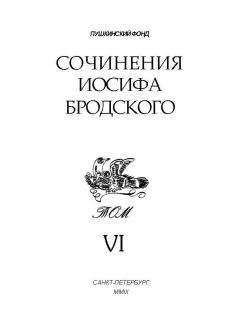Scott Tracey - Moonset
Denton? Denton was Mal’s last name. “How—” But I wasn’t given a chance to finish.
“Cyrus Denton had a brother, of course. And that brother had a son,” said Mrs. Campbell, acting like she hadn’t been losing her cool only a few minutes ago. “Isn’t it obvious? The Denton boys have always had a certain look. Easy pickings in a crowd.”
“I’m sorry,” I said, still trying to wrap my head around it. “We were told there wasn’t any family. That we didn’t have—”
“You don’t,” she said shortly. “Luca’s father, all the other Dentons, even the ones that weren’t
Denton by name turned their back on Cyrus. There might be some Daggetts or Owens lurking out there somewhere, but they’ll never come looking for you.”
“That’s not the same thing as not having a family,” I said. I don’t know why, but finding out that there was even more that the Congress had lied to us about got under my skin. They told us we were orphans. That there was no one! We grew up thinking Moonset had existed in a vacuum, and all the while there were blood relatives with their heads down, pretending that they’d never heard of us before.
“Malcolm’s father chose to become a warlock. The word itself means ‘traitor’—blood is just one of the many things he betrayed,” Crawford said.
The rest of the room was quiet. My skin was burning. It wasn’t enough that the teacher clearly despised every second I was invading her classroom, but the way she talked was somehow even worse than Miss Virago. The redheaded Congress operative was contemptuous and dismissive, but Crawford acted like she actually hated me, and the fact that she had to speak to me at all was completely unacceptable.
“Very well,” she said suddenly. “Let’s have a little lesson for Mister Daggett, since he’s so oblivious to the history he comes from. Kevin, what separates a witch who rebels from the
Congress with a warlock?”
The jock sat up in his chair. “A warlock creates a connection to the Abyss, and invokes the black arts. It’s what makes them so dangerous.”
Christians believed in Hell. Witches believed in the Abyss. The only difference was that we could actually prove ours existed. The Abyss was some sort of portal, or world, or dimension that was basically a giant, living pit, and that pit was full of dark power. It was called Maleficia, and it was a devastating alternative to magic.
If magic was a language and a voice, Maleficia was a glass-shattering shriek. You didn’t cast spells with Maleficia, you released its power from the Abyss—and it sowed chaos and destruction wherever it spread. Even the tiniest invocation of the black arts could create devastating weapons that would continue for hours.
“Maleficia was the power that gave Moonset the edge in the war,” I said, interrupting. Mrs.
Crawford thought to shame me by reminding me what our parents had done, but all of us had come to terms with it a long time ago. “They would strike in secret, unleash their black arts, and by the time the Congress could mount a defense, they were too busy trying to contain the
Maleficia to fight back.”
“You will speak when called upon, Mr. Daggett,” Mrs. Crawford snapped. “Continue, Kevin.”
“Well, he’s right,” Kevin said uncomfortably. “A warlock is someone who becomes connected to the Abyss, and it makes them irrational. Insane. It’s the reason most people believe that
Moonset was beaten in the end. Because their minds were compromised.”
“You can’t tell someone is a warlock just by looking at them,” Maddy chimed in. “Which is why—” she cut off abruptly, but not before she glanced my way.
So it’s not entirely a secret. Things were starting to become a little more clear. “You want it to be me who drew that on the board,” I said slowly, “because you don’t want to think about who else it could have been.” Better the Moonset bastard than the warlock that was walking free around Carrow Mill.
“That is enough, Mr. Daggett.”
“How long has he been active? Why haven’t they caught him yet?” I demanded. “I mean, we are talking about a warlock here in town, right?”
The room went so quiet I could almost hear the steam coming out of Mrs. Crawford’s ears.
“We are not discussing this,” she hissed. “If you disrupt my classroom one more time, you will be removed from it.”
I sat back in my chair, my thoughts racing. So the witches in town knew. But what were any of them doing? Why hadn’t the Witchers caught and executed the warlock yet? And it still didn’t explain what he wanted with us. Why bring us to Carrow Mill?
I tuned the class out for several minutes, only picking back up when I heard the word
“Maleficia” crop up again.
“Talk to me about the Black Scare,” Mrs. Crawford said, looking down at Maddy.
“The Black Scare was a period during the fifties when witches grew paranoid over the idea that any of their neighbors or friends could secretly be experimenting with the dark arts.
Invoking Maleficia.”
“How many years?” Her question was like a whip crack the moment Maddy had stopped to take a breath. The girl fumbled, her mouth opening and closing several times but the answer would just not come out.
“Two and a half years,” Kevin piped up. “From ’54 to just before Christmas of ’56.”
“Our illustrious wide receiver with the save,” the teacher commented. “But I would expect nothing less of you, Kevin. Your grandfather played a part in quelling that very hysteria, didn’t he?”
“He did,” the guy nodded.
“So continue on, Kevin. Tell us what you know about those years.”
“It started as a political ploy between rival covens. Accusing someone of invoking the black arts permanently scarred their reputation.”
Behind the podium, she nodded. “So what happened?”
“It continued to spread until it became a class issue. Covens started banding together, accusing Solitaries that were in positions of power or authority. Positions they wanted for themselves. Tensions between the Covens and the Solitaries continued to get worse, and it became a hysteria.”
There had always two kinds of witches—the covens that made the majority of the rules, and those who were solitary—who didn’t have a coven of their own. Since the coven bond could not be forced, or faked, it was looked at by some as a kind of divine providence. Coven witches were stronger, could access more complicated magicks, could pool their powers in ways that a group of solitaries could not. Mrs. Crawford held up her hand to stop him. “A handful of men and women stirred up a firestorm of paranoia and panic. We saw the same thing happen only a few years later with the Red Scare and Communism. What lessons can we glean from the past?” She swept across the room as she spoke, her words as animated as her body. “Luca?”
He lifted his head from the desk, lines creased into his skin. Were his eyes red, or was that just a trick of the light? It was hard to tell. There was enough of a pause that it seemed like he hadn’t heard anything but his name, but eventually he answered. “We hate too easily?”
“Are you kidding? “ Maddy didn’t wait to be called on, nor could she hold her tongue. “It’s not hate to want to be vigilant. Maybe if people had been more concerned with rooting out evil instead of wringing their hands about violating witch’s rights, Moonset never would have happened.” Her eyes found mine. “They would have been put down like dogs, right from the start.”
Maddy’s opinion didn’t surprise me. People talked about killing Moonset the same way they talked about killing Hitler. Sacrificing one to save thousands. It was hard to say whether or not they were wrong, since the only advantage I could come up with to Moonset’s existence was that it led to my own.
“But who gets to decide who lives and who dies?” I found myself speaking up.
“There’s a reason that the Congress is overseen by some of the Great Covens,” she said stiffly in reply. “It’s harder for a coven to succumb to the lure of Maleficia.” But when they did, the result was so much worse. See: Moonset.
The taint of Maleficia took over after a while, and warlocks became essentially brainwashed puppets with the Abyss’s agenda as their only direction. Supposedly, the Coven bond made witches resistant to Maleficia’s influence.
“So you believe in an oligarchy? A police state ruled by the Covens? You’re not in a coven.
That makes you a second-class citizen.”
“He’s right. That would make him better than us.” Kevin had turned in his seat, but he lacked
Maddy’s malice.
Mrs. Crawford swept in front of Maddy’s desk. Her smile was disturbing. “We’re having such excellent debates today.” The pit in my stomach dug a little deeper. “Maddy, Mr. Daggett,” she continued. “Let’s have you both come to the front.”
Mrs. Crawford pulled a second podium from its place against the wall and dragged it forward. “Maddy, you can stand over here,” she said, putting Maddy on the side of the room closer to where she’d been sitting. “And you can take my podium,” she said to me. I stepped behind it, resting my hands on the sides.
Mrs. Crawford walked to the back of the room. “Let’s move forward in time,” she said. A knot formed in my stomach. Before she said anything else, I knew what we were going to discuss, and that it was going to blow up in my face.
“Let’s discuss the political climate leading up to the Moonset War,” Mrs. Crawford said, her hands carefully clasped in front of her. Kevin and Luca both started to stir. “Madeline, take the perspective of the status quo, the Covens and their oversight over the magical community.
Justin, take the perspective of the dissidents. How do we resolve this issue? Let’s debate.”
“I don’t think this is appropriate,” Kevin started.
The teacher’s eyes were feverish, her smile forced. “I didn’t ask for comments, Kevin. Keep your opinions to yourself. This is the perfect opportunity to discuss our history.”
Even Maddy knew this was a bad idea. The only difference was that she also thought it was a fantastic one. I’m sure she thought the debate was a slam dunk—after all, was I really going to defend the actions of terrorists?
There was a pad of paper in front of the teacher now, and a pen in her hand. “You each have thirty seconds to make an opening statement. Maddy?”
She cleared her throat, shot me a smug look, and opened her mouth. “I think the magical community is doing almost everything right,” she began. “But I think we can all agree that more strict guidelines need to be in place to oversee who’s learning what kinds of magic.”
“Why is that? Why can we all agree?” Mrs. Crawford interjected.
Maddy fumbled for a moment. “I think the past speaks for itself,” she said carefully, “and if we’ve learned anything from the Black Scare, it’s that we need to marry vigilance and wisdom together, rather than waver too far in one direction.” Marry vigilance? The sinking feeling got worse. Crawford hadn’t just pitted us against each other because Maddy didn’t like me. Maddy clearly had a history on the debate team.


